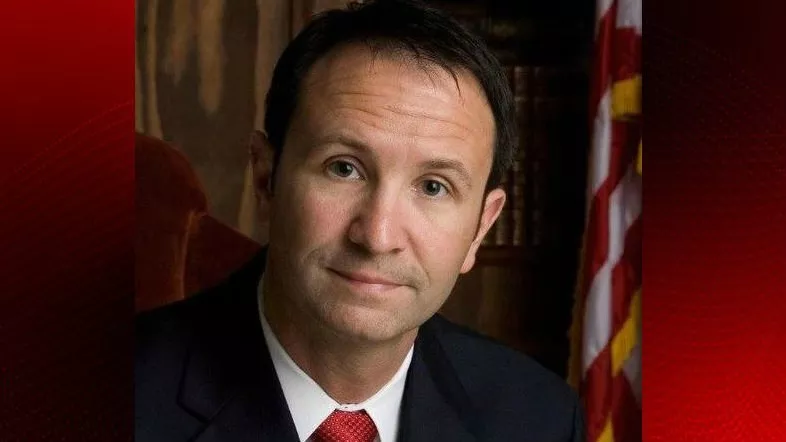 A spokesperson for Louisiana Attorney General Jeff Landry says his office does not have jurisdiction to launch an investigation like the Pennsylvania grand-jury proceedings that unearthed decades of sexual abuse within Catholic dioceses there.
A spokesperson for Louisiana Attorney General Jeff Landry says his office does not have jurisdiction to launch an investigation like the Pennsylvania grand-jury proceedings that unearthed decades of sexual abuse within Catholic dioceses there.
KATC reached out to Landry’s office to request his response to the Catholic Church’s child sex-abuse crisis. We also asked whether Landry would consider convening a grand jury on the cover-up of sexual assault within the dioceses of Louisiana.
In response, a spokesperson for the office issued this statement:
As you know, our office is part of the Internet Crimes Against Children (ICAC) task force which includes over 150 law enforcement agencies across Louisiana and thousands nationally. Being part of ICAC gives us the ability to find child predators, investigate their activities, and arrest them. Our office has made literally hundreds of arrests since General Landry took office. As we are heavily involved with ICAC, our investigations primarily focus on internet crimes, which we see often leads to hands on offenses. We recommend that physical acts perpetrated against children be reported to local law enforcement/first responder agencies. We, of course, stand ready should law enforcement agencies need assistance from our digital forensic lab examiners and/or our cyber investigators. These men and women do a phenomenal job and they share General Landry’s commitment to bring child predators to justice.
We followed up after the statement. Spokesperson Ruth Wisher said the allegations against the church are serious, but when it comes to convening a grand jury like Pennsylvania’s AG did, “we don’t have the original jurisdiction to do that.”
We asked 15th Judicial District Attorney Keith Stutes the same question last week, and he responded in a similar manner. More on that here.
Grand jury laws differ
Louisiana’s Code of Criminal Procedure states the the grand jury “is an accusatory body and not a censor of public morals. It shall make no report or recommendation, other than to” return a true or not true bill that a crime was committed or by abandoning the investigation.
In contrast, Pennsylvania law allows for investigating grand juries, like the one that dug into the dioceses there. Those grand juries are allowed “to identify, criticize and implicate people who have not been charged with crimes,” according to a recent report from the Pittsburgh Post-Gazette:
In Pennsylvania, which enacted its current law in 1980, prosecutors often have used grand juries to spotlight public corruption and organized crime, at times presenting recommendations for policy changes when crimes fall outside the statute of limitations for bringing charges.
Over the course of an investigation, a group of 23 grand jurors meets in private – usually for 18 to 24 months – to hear testimony and weigh potential evidence on complicated crimes or issues of public importance. At the end, and often with heavy input from prosecutors, the panel may issue a report documenting its findings, recommendations for charges or steps for improving public policy.
People who are criticized in reports often have a chance to submit a written response for public release but usually don’t get access to all the evidence and can’t cross-examine witnesses.
Defense attorneys argue that the process hampers their ability to properly serve their clients, while prosecutors say it is essential for building complex cases. In investigations of crimes that occurred outside the statute of limitations, the grand jury room might offer “the only time the victims have a voice,” said Greg Rowe, legislative liaison for the Pennsylvania District Attorneys Association.
The state’s grand-jury law has been subjected to challenges, as the newspaper reports.
Read more:
Old laws close case against retired Louisiana priest, despite ‘credible’ evidence of rape
Family attorney: Luncheon held for priest after molestation accusation surfaced
Man claims abuse by St. Martin Parish priest; Diocese responds


